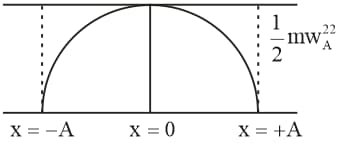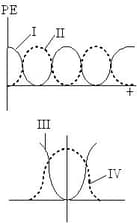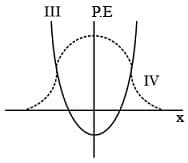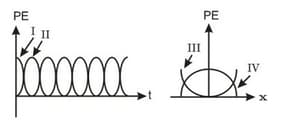Energy in Simple Harmonic Motion
Energy in Simple Harmonic Motion: Overview
This topic covers concepts, such as Energy in SHM, Kinetic Energy in Terms of Time in SHM, Potential Energy in Terms of Displacement in SHM, Maximum Kinetic Energy in SHM & Energy Method in Solving SHM etc.
Important Questions on Energy in Simple Harmonic Motion
A particle of mass oscillates in Simple Harmonic Motion between points and , the equilibrium position being . Which of the following graphs represents the variation of its potential energy with respect to its position?
A particle executing SHM with an amplitude . The displacement of the particle when its potential energy is half of its total energy is
Graph of kinetic energy in terms of displacement in :-
(i) At what displacement of particle executing has maximum kinetic energy.

A particle of mass m executing SHM with amplitude and angular frequency . The average value of the kinetic energy and potential energy over a period is
For a particle executing SHM the displacement is given by Identify the graph which represents the variation of potential energy () as a function of time and displacement.

A particle free to move along the -axis has potential energy given as , where is a positive constant of appropriate dimensions. Then
A body executes simple harmonic motion. The potential energy (PE), the kinetic energy (KE) and total energy (TE) are measured as function of displacement . Which of the following statement is true?
A body is executing simple harmonic motion. If the bottom datum is at mean position, then
For a particle executing SHM, the displacement is given by . Identify the graph which represents the variation of potential energy as a function of time and displacement .

For a particle executing the displacement is given by . Identify the graph which represents the variation of potential energy as a function of time and displacement .

In a simple harmonic oscillator, at the mean position
